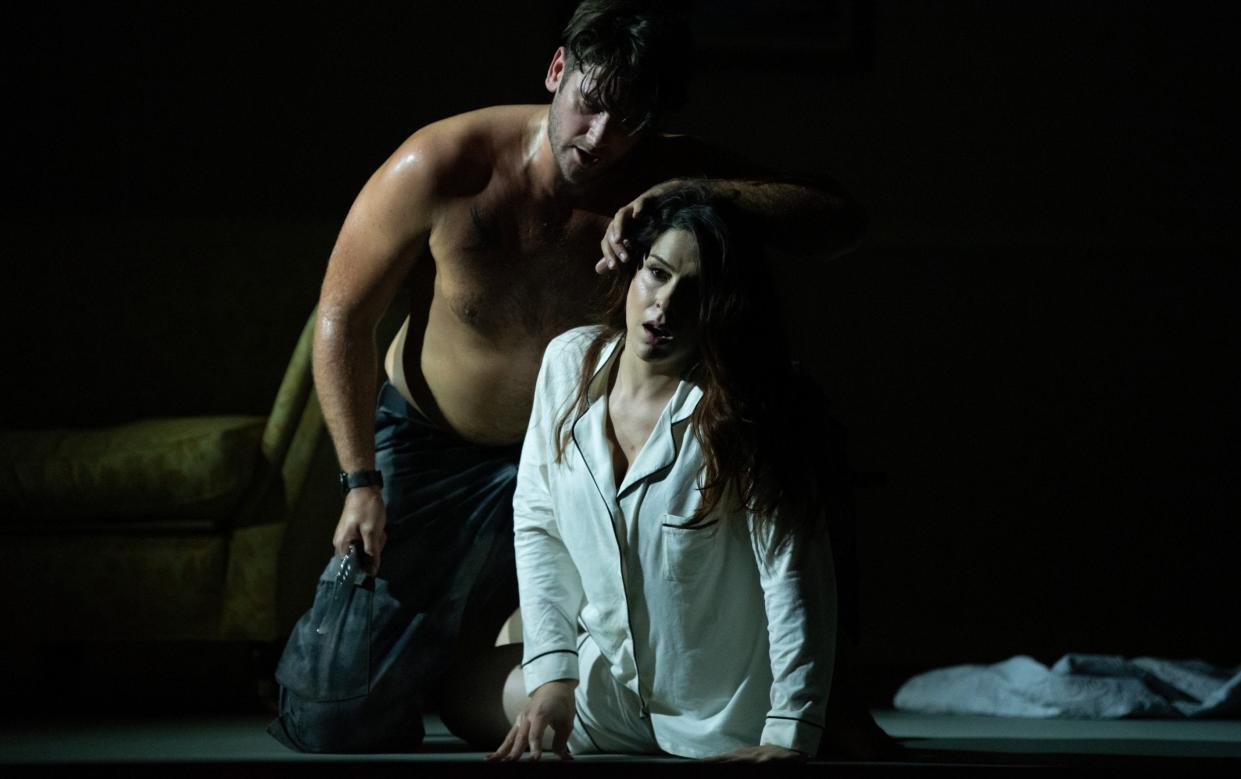The Rape of Lucretia: a heroine still too defined by her victimhood

The Rape of Lucretia is what Benjamin Britten did next: the difficult second opera after one of the greatest debuts in the repertoire. Where the emotional tangles of Peter Grimes are generous and confident, Lucretia is tightly knotted: a tense, taut, intricate chamber opera that demands careful unpicking from its audience. Done right, it’s also a shattering experience – a vivisection of war and its traumas, still warm at the 1946 premiere.
Alone at home with her servants while her husband Collatinus fights at the war, Lucretia is visited by the invader-prince Tarquinius. He rapes her. Overcome by shame, she summons her husband, tells him what has happened, then kills herself in front of him.
Director Oliver Mears shrouds the wide stage of Snape Maltings in white curtains. We feel every inch of that width as they close repeatedly, forcing the Male and Female Chorus (Michael Gibson and Sydney Baedke) to reopen them, exposing the horrors behind. These narrators – a cloying Christian framework for a far-from Christian plot – are just one of the challenges of Ronald Duncan’s overwrought libretto. If Mears can’t fully resolve them, his staging supplies an armful of interesting innovations and ideas along the way.
The question of emotional stake is crucial. Without giving too much away, these onlookers are absolutely tied to the tragedy they bear witness to. We’re no longer in ancient Rome but a present-day institution, all sterile pastels and wipe-clean comfort. Perched on an ugly sofa, armed with a folder full of documents, they tell us a story that’s as much about the politics and psychology of war as its physical abuses.
Propaganda is all. Lucretia’s dutiful paean to her absent husband becomes a TV interview; a tabloid-style spread is pinned to the wall of the barracks; her dead body is carefully photographed by Junius – emotive ammunition for the overthrow of Tarquinius and Etruscan rule. Even maids Bianca and Lucia’s ravishing duet “O! What a lovely day” becomes a brave public face on private, unspeakable fear.
What’s lacking is a sense of the characters as people rather than ideas. The young cast sing well, dynamically supported by players from Aurora Orchestra and conductor Corinna Niemeyer. But apart from the deftly sketched relationship between Carolyn Holt’s Bianca (warm, protective, defiant) and Sarah Dufresne’s wide-eyed Lucia, they lack specificity, particularity.
Mezzo-soprano Anne Marie Stanley’s Lucretia is oddly unmoving because we learn nothing of her but her victimhood: she is what happens to her. It’s a problem that’s partly of Britten’s making, but one that this intelligent and sensitive production still fails to solve.

 Yahoo News
Yahoo News 
